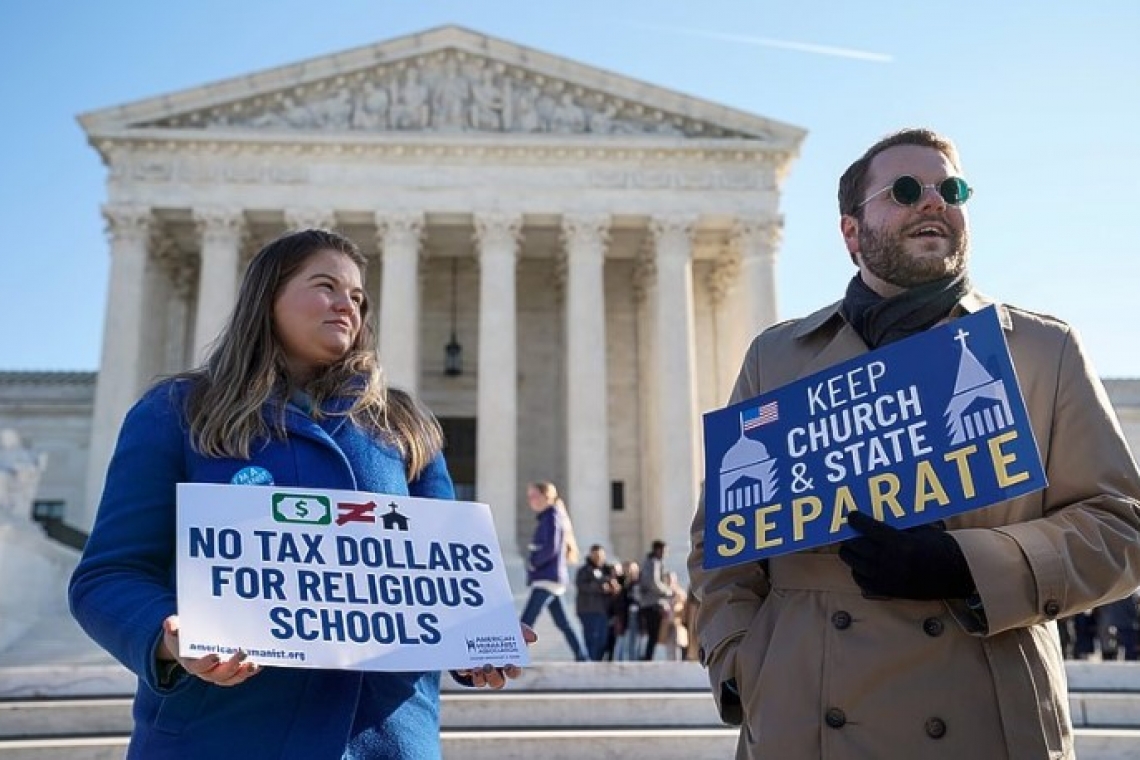WASHINGTON--The U.S. Supreme Court appeared divided on Wednesday in a major legal battle over taxpayer funds going to religious schools, with Chief Justice John Roberts emerging as the potential pivotal vote in a Montana case that could open the door to more public aid for faith-based institutions.
The nine justices heard about an hour of arguments over a Montana tax credit programme beneficial to private religious schools. Three mothers of students at a Christian school in Kalispell, Montana challenged a lower court ruling that struck down the programme as a violation of the state constitution's ban on government aid to religious schools and churches. The ruling in the case, expected by the end of June, could narrow the separation of church and state.
Some conservative justices expressed sympathy for the challengers, suggesting that excluding religious schools from the tax credit programme amounts to impermissible discrimination. Liberal justices countered that there was no discrimination because the entire programme had been struck down. The court has a 5-4 conservative majority.
Roberts, a traditional conservative who is considered the court's ideological center, asked questions that reflected a concern for public education and for the protection of religious people. Roberts questioned how public school funding could be affected. He also wondered whether discrimination seen in this case is different from racial discrimination in a scenario such as officials shutting down all public swimming pools that could be used by African Americans.
Roberts is doing double duty, afterward presiding over President Donald Trump's impeachment trial in the U.S. Senate.
The mothers of Stillwater Christian School students sued in 2015, arguing that excluding religious school pupils from a scholarship programme that helped pay tuition costs violated their rights under the U.S. Constitution to free exercise of religion and equal protection under the law. Churches and Christian groups in the United States have pushed for years to expand access to public dollars for religious schools and places of worship, testing the limits of secularism in the United States.
Much of the litigation has involved attempts to create vouchers or other subsidies for private religious schools in states like Montana whose constitutions explicitly ban such funding. Republican President Donald Trump's education secretary, Betsy DeVos, is a prominent supporter of such "school choice" plans. The plaintiffs in the Montana case are backed by Trump's administration.
Critics of the programs have said they would siphon off scarce resources from public schools. These critics have said a ruling in favour of the plaintiffs would require taxpayers to underwrite religious institutions - despite the U.S. Constitution's prohibition on government establishment of religion. They also said some of these religious institutions may discriminate against LGBT students or employees.
The Montana case gives the court a chance to build on its major 2017 religious rights ruling in favour of a Missouri church, Trinity Lutheran, that challenged its exclusion from state playground improvement grants generally available to other nonprofit groups.
The Supreme Court ruled 7-2 in that case that churches and other religious entities cannot be flatly denied public money even in states whose constitutions explicitly ban such funding. But the ruling was narrow and emphasized it was not addressing "religious uses of funding or other forms of discrimination."







